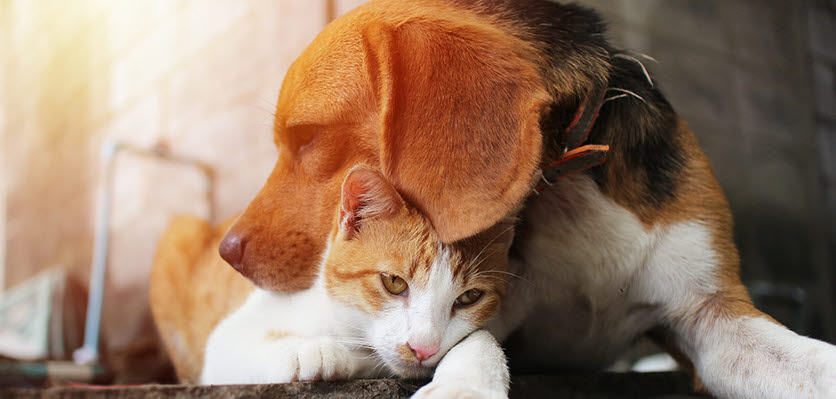Pet desexing explained

What is desexing?
Desexing is a surgical procedure performed by a veterinarian to sterilise both cats and dogs. This can also be performed on pocket pets such as rabbits, Guinea pigs and ferrets. Your female pet will no longer experience oestrous cycles or fall pregnant following sterilisation.
Your male pet will no longer experience the urge to roam looking for females in season. This is a permanent procedure and contributes to prolonged health in your pet. Desexing your pets is considered a vital component of responsible pet ownership.
During desexing of a female dog or cat (known as spaying), her uterus and ovaries are removed. This is an invasive surgery and it performed under general anaesthetic at your local veterinary surgery.
Desexing of a male dog or cat (known as castration) is also performed under anaesthetic to remove the testicles, though this is a much shorter and less invasive surgery.
Why should I have my pet desexed?
- Reduced behavioural problems such as roaming, aggression, urine marking in males
- No bleeding in females
- Prevents illnesses and diseases such as mammary cancer, uterine infection in females, and prostate cancers in males
- Reduces the incidence of unwanted pregnancy in our pets, therefore, reducing the number of unwanted pets that are euthanised every year
What if I have an indoor pet?
Desexing indoor pets has many benefits and can directly resolve the following issues:
- Male cats are known to spray urine to mark their territory
- Female cats will vocalise when in season
- Female dogs bleed when in season
- Male dogs kept indoors can become destructive in attempts to roam and seek females, putting them at risk for road traffic accidents
Dispelling the myths
- Desexing will not change your pet's personality, but may improve certain behaviours
- Pets that are desexed at a young age will be at reduced risk of contributing to pet overpopulation and unwanted breeding
- Desexing does not cause weight gain or directly affect normal activity levels in your pet. If weight gain occurs after desexing, a simple adjustment to diet and activity can resolve this.
Responsible pet ownership
It is important to own domestic pets responsibly. This begins with desexing our pets. Unwanted populations of domestic dogs, cats, pocket pets and even fish species have the ability to become very disruptive to native species and may offset the balance of our natural ecosystems.
More information on responsible pet ownership can be found here.
